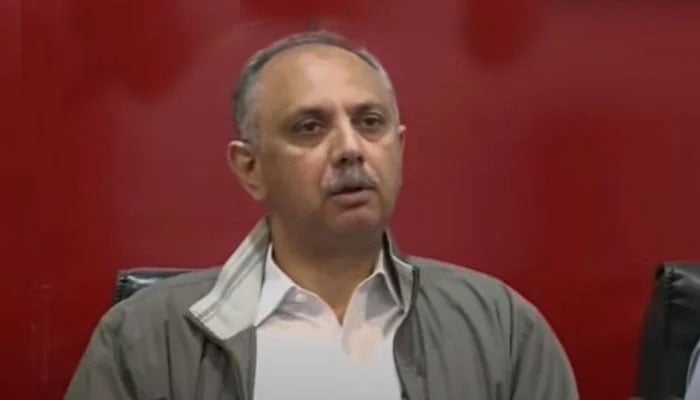Omar Ayub highlights six ‘key flaws’ in WB’s tariff reform modelling
"Model does not take into account geopolitical moves by foreign governments to impose counter veiling tariffs such as USA," says Ayub
ISLAMABAD: While Opposition Leader Omar Ayub Khan highlighted six major flaws in the World Bank’s modelling for envisaging import tariff reduction, the World Bank said Pakistan would have a positive impact of 6 percent boost in GDP, $8-15 billion increase in exports, and creation of 1 million jobs over five years.
However against the general perception of increasing imports at a rapid pace through tariff rationalisation resulting in escalation in trade deficit and flooding Pakistani markets with imports, the WB has estimated that imports would go up by only 6 percent while exports would increase by 14 percent over five years.
The WB stated that this model of envisaging tariff rationalisation does not cater to uncertainties on the political front, especially in the aftermath of the recent ongoing Iran-Israel conflict and increasing oil prices in the international market. The WB expects that the exchange rate movement would be undertaken in line with the free exchange rate.
During this briefing which was open for the media, it was conceded that these tariff reforms were front-loaded and envisaged to be implemented mostly in the first two years, knowing that the political government could implement hard decisions in the first couple of years after coming into power.
These projections as a result of the National Tariff Policy for 2025 - 2030 for Pakistan were shared by WB Economist Ms. Anna Twum with the Opposition Leader in the National Assembly along with other MNAs from the PTI here at the Parliament House on Friday morning.
Opposition Leader Omar Ayub Khan flagged six major flaws in the modelling of the WB to estimate results of these tariff reforms and stated the assumed variables are not applicable in Pakistan. “For instance, perfect competition, adopting a static model, the Pakistan Bureau of Statistics (PBS) contaminated data is being used. In addition, international bodies also use PBS data. This model is very specific to be used for assessing impact of tariff lines. It assumes that Tariff Reforms will have to take place. Political will and ability to push the reforms are not taken into account. The model does not take into account the geopolitical moves by foreign governments to impose counter veiling tariffs such as USA.”
In his sixth point, he said the government is incorrectly projecting increase in exports and increase in GDP based on this model which cannot be applied fully in case of Pakistan.
-
 Eric Dane Got Honest About His Struggle With ALS In Final Public Appearance: 'No Reason To Be In A Good Spirit'
Eric Dane Got Honest About His Struggle With ALS In Final Public Appearance: 'No Reason To Be In A Good Spirit' -
 Google AI Overviews And Mental Health: Why Experts Say It’s ‘very Dangerous’
Google AI Overviews And Mental Health: Why Experts Say It’s ‘very Dangerous’ -
 Prince Harry Issues A Statement For His 'incredible' WellChild Children
Prince Harry Issues A Statement For His 'incredible' WellChild Children -
 5 Famous Celebrities Who Beat Cancer
5 Famous Celebrities Who Beat Cancer -
 Spinosaurus Mirabilis: New Species Ready To Take Center Stage At Chicago Children’s Museum In Surprising Discovery
Spinosaurus Mirabilis: New Species Ready To Take Center Stage At Chicago Children’s Museum In Surprising Discovery -
 ByteDance Expands Artificial Intelligence Operations In US
ByteDance Expands Artificial Intelligence Operations In US -
 Angelina Jolie’s Breast Cancer Surgeon Appreciates Her For Calling Scars 'a Choice': 'They Are Choices To Survive'
Angelina Jolie’s Breast Cancer Surgeon Appreciates Her For Calling Scars 'a Choice': 'They Are Choices To Survive' -
 Detective Chief Inspector Reveals How Andrew Got Treated In Police Custody
Detective Chief Inspector Reveals How Andrew Got Treated In Police Custody -
 Gemini 3.1 Pro Unveiled: Google’s Next-gen AI For Advanced Reasoning & Faster Enterprise Workflows
Gemini 3.1 Pro Unveiled: Google’s Next-gen AI For Advanced Reasoning & Faster Enterprise Workflows -
 Oprah Winfrey Talks About Weight-loss 'tool To Manage' Health
Oprah Winfrey Talks About Weight-loss 'tool To Manage' Health -
 Texas Emerges As World's Future Data Center Capital
Texas Emerges As World's Future Data Center Capital -
 South Korea’s Ex-President Yoon Issues Public Apology After Being Sentenced To Life Over Martial Law
South Korea’s Ex-President Yoon Issues Public Apology After Being Sentenced To Life Over Martial Law -
 Eric Dane Recorded Episodes For The Third Season Of 'Euphoria' Before His Death From ALS Complications
Eric Dane Recorded Episodes For The Third Season Of 'Euphoria' Before His Death From ALS Complications -
 Inside Morning Of Andrew’s Arrest And How He Responded: ‘Do You Know Who I Am?’
Inside Morning Of Andrew’s Arrest And How He Responded: ‘Do You Know Who I Am?’ -
 OpenAI Sam Altman Predicts AI Superintelligence By 2028: Is Humanity Ready For A Turning Point?
OpenAI Sam Altman Predicts AI Superintelligence By 2028: Is Humanity Ready For A Turning Point? -
 WhatsApp Rolls Out Group Message History To Ease Group Chats
WhatsApp Rolls Out Group Message History To Ease Group Chats




